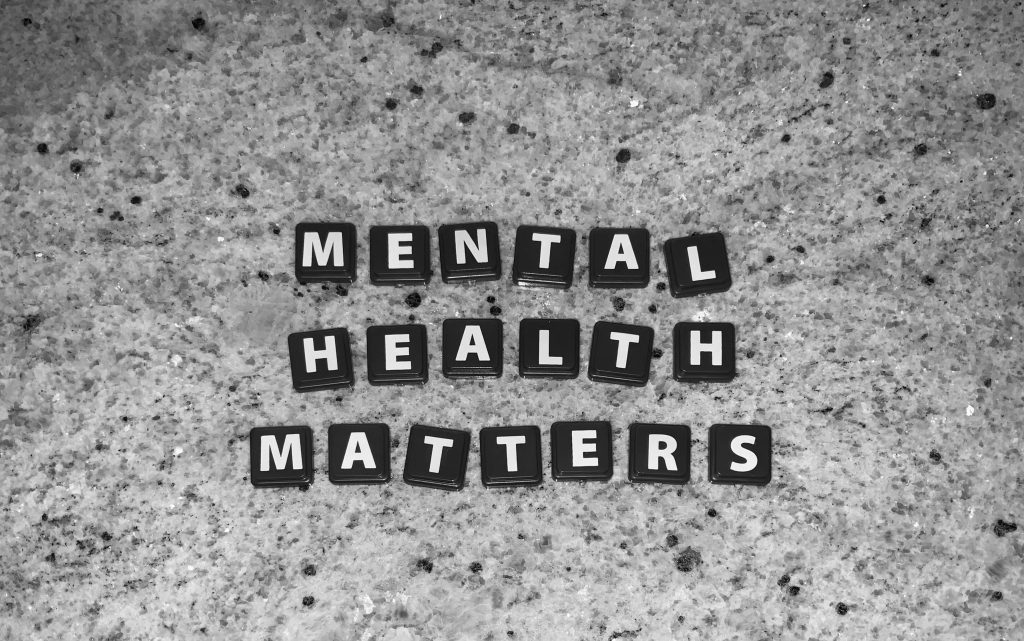Let’s be honest—remote learning is convenient, but it’s not without its challenges.
At Robert Kennedy College (RKC), students join programs from around the world, pursuing degrees in business, law, technology, and leadership—often while juggling careers, families, and personal obligations. With flexible online delivery and academic partnerships with esteemed UK universities, RKC empowers learners to access world-class education from anywhere. But that flexibility also comes with unique psychological demands.
Whether you’re navigating your undergraduate journey, deep in a master’s program, or managing the complexities of a doctoral thesis, your mental health and well-being deserve attention and care. And in a virtual learning environment—where personal, academic, and professional boundaries often blur—it becomes essential to support both mind and body intentionally.
This guide offers practical, accessible strategies tailored for RKC’s global community of remote learners.

1. Create a Routine That Respects Your Brain
Forget the idealized schedules seen on social media. What matters is creating a structure that works for your life and time zone.
- Wake up and sleep at consistent times
- Schedule focused study sessions and regular breaks
- Eat nourishing meals and make space for rest
Students at RKC span continents, so time zones vary widely. Tools like Google Calendar or Notion can help you block time effectively and maintain a rhythm that aligns with your local reality.
Why does this matter? Because the brain performs best with consistency. Without it, deadlines begin to feel chaotic, and burnout can creep in unnoticed.
2. Set Boundaries with Your Study Space
Not every student has a dedicated office—and that’s perfectly okay. Still, try to designate a specific area as your “study zone,” even if it’s just a corner of your kitchen table.
This physical cue tells your brain: it’s time to focus.

Just as importantly, shut down when your study session is over. Avoid the trap of keeping your laptop open 24/7. Creating “start” and “end” rituals—such as lighting a candle, playing a focus playlist, or closing your browser tabs—can reinforce those mental boundaries.
3. Fight Isolation—Even if You’re an Introvert
Let’s acknowledge a truth: remote learning can feel lonely. Studying asynchronously, often in different time zones from your classmates, can make it harder to feel connected.
To combat this:
- Engage in RKC’s online forums and discussion boards
- Join or initiate study groups through WhatsApp, Discord, or Zoom
- Reach out to classmates who regularly post thoughtful responses
At RKC, you’re part of a diverse, global cohort. While you may not meet in person, forming virtual connections can significantly improve your academic experience—and your mental well-being.
4. Be Gentle with Your Inner Critic
Every learner, at some point, hears the voice: You’re behind. You should be doing more.

Especially in remote settings, it’s easy to compare yourself to others or feel like you’re not doing enough. But you are. You’re showing up. You’re trying. And that’s brave.
Self-compassion isn’t just kind—it’s effective. Research shows that treating yourself with the same empathy you’d offer a friend can boost resilience, focus, and performance.
You are doing something difficult and meaningful. Allow yourself space to grow without judgment.
5. Move Your Body – It Doesn’t Have to Be Perfect
You don’t need to hit the gym or run marathons. Just get out of your chair. Stretch. Walk around the block. Dance around your room for five minutes like no one’s watching.

Movement supports mental clarity, improves sleep, and even enhances learning retention—key factors in managing a demanding program at Robert Kennedy College.
6. Recognize Burnout and Ask for Help
Burnout is more than tiredness. It’s mental and emotional fatigue, often paired with cynicism and a sense of helplessness. If you find yourself disengaging from your studies or dreading assignments, take it seriously.
- Talk to a trusted peer, mentor, or coach
- Explore teletherapy services like BetterHelp or Talkspace
- Investigate local mental health resources in your area
- Utilize any RKC academic support services available through your program
7. Make Joy a Priority, Not a Reward
Don’t wait until your dissertation is submitted or your last module is complete to do something that brings you joy.

Bake cookies. Watch a feel-good show. Spend time with your children or pets. Joy fuels motivation. At RKC, where many students balance full-time work and study, small moments of pleasure aren’t distractions—they’re vital for sustainable learning.
You’re Not Alone in This Journey
Learning remotely through Robert Kennedy College means you are part of a truly global academic network. From professionals in Nairobi managing MBA projects, to parents in Toronto juggling MSc coursework with family life, every RKC student brings unique challenges—and strengths.
Words from Fellow Global Students
“Being a remote learner at RKC is empowering, but it’s not always easy. I found strength in forming weekly calls with classmates in similar time zones—it gave me structure and support.” – Sarah A., Canada
“Mindfulness helped me survive my MBA dissertation. Just 10 minutes of deep breathing before study sessions made a huge difference.”– Julius N., Kenya
You may be studying from your living room, but you’re not isolated. You’re part of an international learning community united by ambition, discipline, and growth.
So remember:
- Your education is important, but your well-being is foundational
- Taking breaks isn’t slacking—it’s strategy
- Asking for help shows strength, not failure
Be kind to yourself. Breathe. Make time for connection, clarity, and care. You’re doing better than you think—and you’re not doing it alone.

Thank you so much for this Presentation. It helps me to feel motivated and high energy as it will help me to take my program and move forward with full enthusiasm and confidence.
Thank you for your thoughtful feedback. I’m pleased to hear the presentation inspired and energized you—wishing you continued success with your program.
This is quite inspiring and refreshing too “Mind over Miles”
Thank you for those recommendations, and encouragement not to give up.
You are highly appreciated.
Thank you for your kind words Lanre. I’m glad ‘Mind over Miles’ resonated with you—your support is truly appreciated.
Interesting article
Thanks for sharing your thoughts or ideas
Do whatever works for your work or home work or meditation time slots
For myself
This works
8 to 9 hours of sleep routine
Watching friends or cheers or Kapil sharma comedy show
After walking after each meal etc
Go back to your primary school routine
Primary or high school type discipline helps
School start time
School end time
Physical training
Walking
Running or yoga or meditation music
Thank you Raghavender for sharing your reflections and personal routine. It’s great to hear what works well for you—structured habits and discipline truly make a lasting difference.